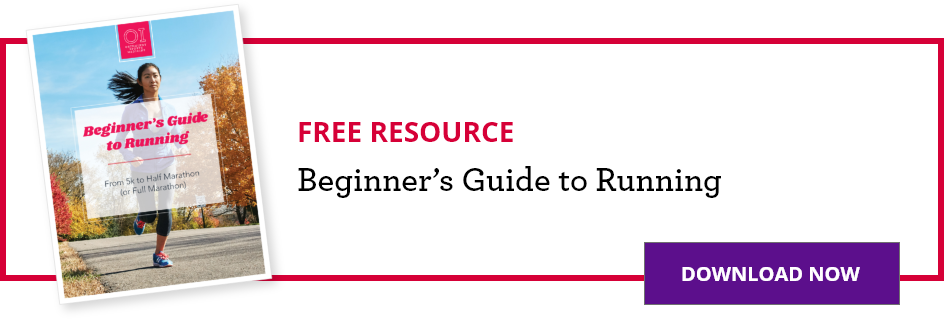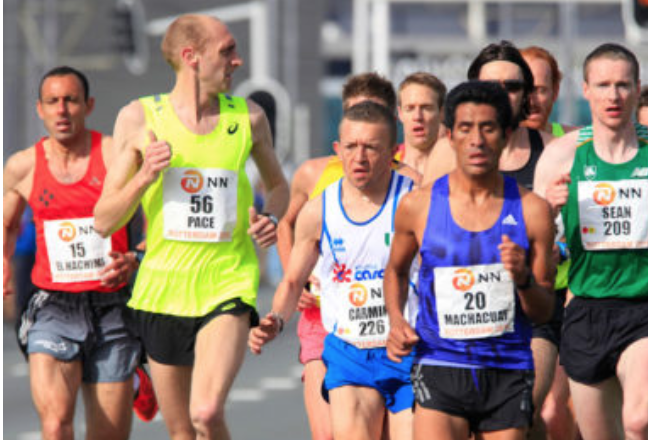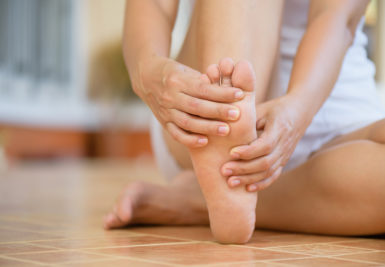THIS POST IS PART OF THE ULTIMATE GUIDE TO A HEALTHY LIFESTYLE
Whether you plan on walking or running a mini marathon (or a combination of the two), a solid injury prevention program can help you minimize your risk of injury and maximize your training benefits. Although this can be a very broad topic, James Gruesser, an OrthoIndy physical therapist, provides five tips on how to prevent running injuries.
1) Stick to the plan
Follow the running or walking schedule that you made at the very beginning of your training. You can tweak your plan based on things that pop up and limit your ability to train. For example, you may alter your schedule based on weather, illness, kids or work activities. You may be able to switch your weekend “long run” day or add an extra day of rest but for the most part, stick to the plan and be consistent building your mileage and conditioning at a slow, steady pace.
“In my nearly 20 years as a physical therapist, I have seen many clients with running or walking injuries as a direct result of not following a proper training plan and they do ‘too much, too soon, too fast,’” said James.

2) Have a warm up and a cool down
Don’t just roll out of bed or get out of your car and take off. Make sure you get your muscles and joints loosened up and prepared for your training session. Whether you are walking or jogging perform a dynamic warm up routine. For runners and walkers five to ten minutes of easy pace walking, light jogging, high knees, leg swings, dynamic stretches or jumping jacks would be a great warm up. When you are finished with your training session, don’t just stop. Continue to cool down for ten minutes with slower paced walking or jogging and both dynamic and static stretching.
3) Do core strengthening and cross training
Having a strong core and lower extremities is vital to controlling and maintaining proper form. The longer or higher the intensity of the activity, the more functional demand of your muscles and the stronger they need to be to avoid breakdown and overuse injuries. Strengthening exercises and cross training, like biking, swimming, yoga or pilates for 20 to 30 minutes can be done of your “off days” or mixed into your running program.
Learn more about OrthoIndy sports medicine
4) Be flexible
Having adequate flexibility in your muscles is important for force production and performance and reduce cramps and strains. This allows your joints to perform normal range of motion. Active stretching before a training session allows you to warm up your muscles and joints preparing them for activity. Static or traditional stretching, is better after your training session for muscle recovery and lengthening. Yoga is a very popular full body program to help overall flexibility and mobility.
5) Listen to your body
Training for a half marathon can take a toll on your body. There is a normal amount of muscle soreness and joint stiffness to be expected during your training regimen. This is normally more common in the early stages and after higher mileage sessions. This should only last for a day or two and be controlled with stretching and ice recovery. If your soreness doesn’t resolve and turns into pain, you may be experiencing an injury. Injuries can seriously impact your training schedule and ultimately jeopardize your ability to compete on race day. Some common injuries are plantar fasciitis (pain in the arch), achilles tendonitis (pain in the heel), ITB and friction syndrome or “runner’s knee” (pain on the outside of the knee) and patellofemoral pain (knee cap or anterior knee pain.)
Schedule an appointment
Your well-being is important to us. Click the button below or call us to schedule an appointment with one of our orthopedic specialists. If your injury or condition is recent, you can walk right into one of our OrthoIndy Urgent Care locations for immediate care. For rehabilitation and physical therapy, no referral is needed to see one of our physical therapists.





